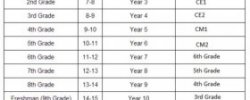Responsible for the English language, cricket and some of the highest-ranked universities in the world, the UK is the study abroad destination of choice for thousands of international students every year. With a multitude of institutions that offer a wide range of qualifications in numerous fields, kick-starting your study abroad planning process may seem overwhelming or even scary. But don’t worry: our breakdown of the UK’s higher education system should help make things clearer and get you on your way.
Types of institution
Higher education institutions in the UK are either degree-awarding (‘recognised bodies, ’ called universities and colleges) or non-degree awarding, but provide bridging courses for entry into a degree-awarding programme (‘listed bodies’). Students should always confirm the exact nature and details of their prospective course of study with their host institution directly.
Recognised bodies: Universities and Colleges
There are 160 universities and colleges across the UK that offer study programmes in all fields, across both undergraduate and postgraduate levels. Recognised bodies are permitted to award students Bachelor, Masters and Doctorate qualifications, as well as selected other higher education awards depending on the nature of the institution.
Listed bodies & other institutions
Whilst these institutions do not have the power to award degrees, they offer a number of vocationally-oriented and bridging programmes that may lead directly to employment, a degree programme or focus on developing a specific, technical skill set.
Undergraduate
A Bachelors degree usually takes three years to complete for a full-time student. Students will commonly complete a programme in a general area of study, and then select a specialisation within that area to focus their studies on. This area of focus is called a ‘major.’ For example, a typical Bachelors title might be Bachelor of Science (BSc), majoring in Anatomy. Bachelor degrees are either awarded as ‘Ordinary’ or ‘Honours, ’ depending on the student’s level of academic achievement. Usually, an Honours degree is a Bachelors programme with a higher degree of academic difficulty, undertaken in the same time as a standard degree. In Scotland, an Honours degree is a four-year full time course as opposed to an ‘Ordinary’ three-year programme.
A Foundation degree combines academic coursework with practical, work-based learning with an employer. It may be undertaken as a programme in itself or act as a bridging qualification towards the final year of an Honours degree.
Students completing Diploma of Higher Education or Higher National Diploma programmes may similarly use these qualifications for entry into the third year of a degree programme. DipHE awards may be academic but are typically linked to a specific profession such as nursing or social work, whilst HND programmes offer studies in more general areas.
A Certificate of Higher Education is the most basic qualification offered at undergraduate level. Students may use this award for entry into a university, Foundation degree, DipHE or full Honours degree programme.
Postgraduate
Similarly, there are a number of different postgraduate programmes on offer across the UK. Students may undertake a Masters degree, Doctorate programme, or choose between a number of postgraduate diploma, professional and vocational qualifications, as well as a number of conversion courses. Postgraduate studies take a more concerned focus upon an area of general study, and are more study-intensive than undergraduate programmes.
Masters degrees are either taught or researched-based programmes that are typically one year in duration, whilst Doctorate programmes may take up to seven years to complete. A PhD is the highest qualification offered by UK institutions.
Postgraduate certificates and diplomas may act as bridging qualifications into a Masters degree, or simply serve to build upon skills and knowledge gained in undergraduate study. They may also be vocational in nature, and differ in length and study area depending on the institution. Professional and vocational programmes are geared specially towards improving practical, employment-based skills required by specific jobs.
Conversion courses are vocational programmes that allow graduates wanting to change their area of study after their first degree to gain the knowledge required for either the workplace or for entry into another programme of study.
Academic culture
Academic culture in the UK values initiative, and expects students to follow coursework and manage their academic progress independently.
Classes vary in nature but often involve both a lecture and tutorial/seminar or practical class component. Discussion in tutorial classes is encouraged, and venturing an opinion, even if it contradicts that of the professor, is taken as proof of engagement with course content: provided, of course, that it is substantiated. What is covered in the lecture is often intended as a departure point for tutorial discussions, where students are encouraged to form their own opinions based on their understanding of concepts covered. Professors commonly set weekly reading and short assessment tasks that are similarly intended to equip students with the critical tools to participate in discussion and expound upon basic ideas covered. These tasks are seldom graded.
Assessment is typically spread over a smaller amount of longer-form tasks such as research essays or extended investigations. Examinations are common and a heavily-weighted part of your final grade. Some courses even have final examinations worth 100% of the overall grade.








